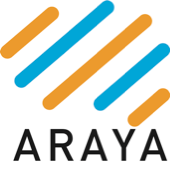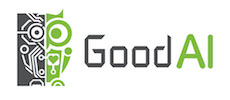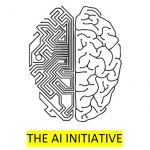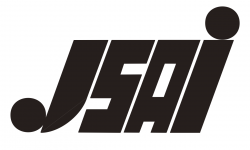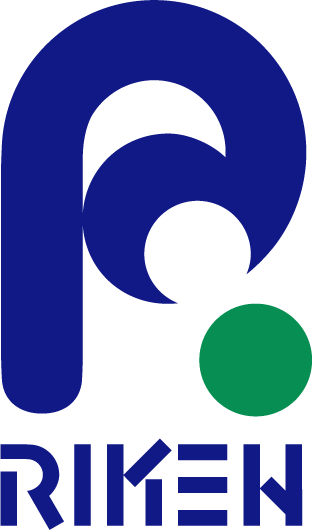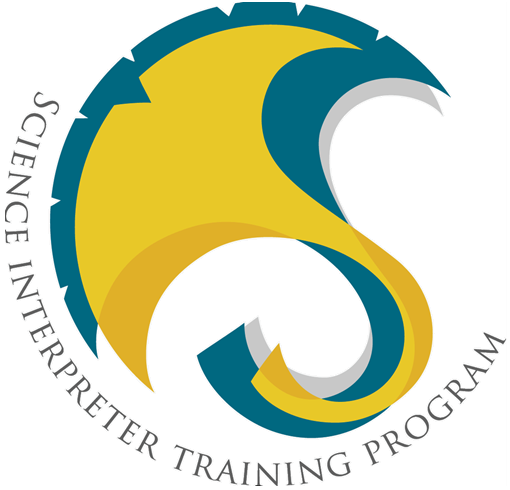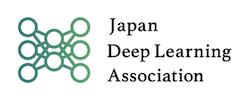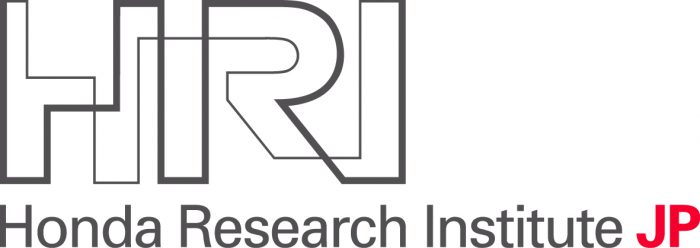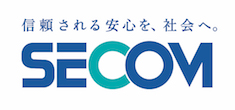This event is hosted by
Next Generation Artificial Intelligence Research Center of the University of Tokyo (Director: Prof. Yasuo Kuniyoshi)
in partnership with:
Araya, Inc.
Global Brain
GoodAI
The AI Initiative
The Japanese Society for Artificial Intelligence (JSAI)
The IEEE Global Initiative for Ethical Considerations in Artificial Intelligence and Autonomous Systems
The Leverhulme Centre for the Future of Intelligence (CFI)
The RIKEN Center for Advanced Intelligence Project
The Science Interpreter Training Program (SITP) at The University of Tokyo
The Whole Brain Architecture Initiative
Japan Deep Learning Association (JDLA)
Sponsors
Platinum: Microsoft Japan, Mitsui Fudosan
Gold: Hewlett-Packard Japan, Honda, Honda Research Institute Japan
Silver: Recruit Communications, Seven Bank, JTB, SunFlare, LeapMind, XCompass, Progress Technologies, SECOM, Fujibo
Special Sponsor
MORI Building
Supporter
FRONTEO
Media Partners
Organizing Committee
Executive Chair
Yasuo Kuniyoshi (University of Tokyo)
Vice Executive Chair
Ryota Kanai (Araya, Inc.)
Committee Members
Tsuneko Aoki (Mitsubishi UFJ Capital)
Arisa Ema (University of Tokyo/RIKEN)
Hiroshi Fukudome (Change, Inc.)
Ayako Fukui (Araya, Inc.)
Kohei Harada (Araya, Inc.)
Naoki Kamimaeda (Global Brain)
Makoto Shiono (IGPI)
Kazuya Tanaka (University of Tokyo)
Yasuhiko Yurimoto (Global Brain)
Ko Ishiyama (Digital Sensation Co., Ltd.)
Next Generation Artificial Intelligence Research Center (AI Center)
Next Generation Artificial Intelligence Research Center (AI Center) attempts to transcend the framework and limitations of current AI technology to construct a novel scheme of science and technology regarding human and artificial intelligence. It will be truly beneficial for humans, driving future society, industry, economy, culture and research. Based on the new scheme, the AI Center will also propose and realize a vision/design of the future society and contribute to advanced education of next leaders. In order to realize these, the AI Center is established as an inter-school research organization to unite all relevant disciplines of the University of Tokyo from science and technology to the humanities as well as external collaborations for powerful syntheses.
Established in December 2013, Araya, Inc. is engaged in the development of artificial consciousness, strong AI technologies grounded on computational theories of consciousness, with combinations of neuroscience and information science.
To contribute to stimulate the Japanese economy, Global Brain supports startups that tackle various problems and create innovation. Our professionals with high achievement and extensive experience discover excellent startups through our multiple global locations and provide growth support through hands-on. The total asset under management is more than 50 billion yen (approx. US$450M), becoming the largest domestic independent venture capital firm.
GoodAI’s mission is to develop general artificial intelligence – as fast as possible – to help humanity and understand the universe. The research and development company started in January 2014 with CEO/CTO Marek Rosa’s personal investment of $10M USD. Its international team of 20 research scientists and engineers is based in Prague, Czech Republic. To help accelerate the search for safe and beneficial general AI, GoodAI has recently launched the General AI Challenge and the AI Roadmap Institute.
The AI Initiative is an initiative of The Future Society at Harvard Kennedy School dedicated to the rise of Artificial Intelligence. Created in 2015, it gathers students, researchers, alumni, faculty and experts from Harvard and beyond, interested in understanding the consequences of the rise of Artificial Intelligence. Its mission is to help shape the global AI policy framework.
The Japanese Society for Artificial Intelligence (JSAI)
Our objectives are to contribute to the development of science and technology as well as to industry and human society through progress of research and spread of knowledge related to AI. We engage in activities: holding of academic meetings, lectures and seminars, publication of journals, proceedings and other periodicals, encouragement of research and recognition of research performance, research and investigation.
The IEEE Global Initiative for Ethical Considerations in Artificial Intelligence and Autonomous Systems
The IEEE Global Initiative for Ethical Considerations in Artificial Intelligence and Autonomous Systems (AI/AS) was launched in April of 2016. The Mission of The IEEE Global Initiative is to ensure every stakeholder involved in the design and development of autonomous and intelligent systems is educated, trained, and empowered to prioritize ethical considerations so that these technologies are advanced for the benefit of humanity. The IEEE Global Initiative has two primary outputs – the creation and iteration of a body of work known as Ethically Aligned Design: A Vision for Prioritizing Human Wellbeing with Artificial Intelligence and Autonomous Systems; and the identification and recommendation of ideas for Standards Projects focused on prioritizing ethical considerations in AI/AS.
The Leverhulme Centre for Future of Intelligence (CFI)
Our vision at the Leverhulme Centre for Future of Intelligence (CFI) is to build a new interdisciplinary community of researchers, with strong links to technologists and the policy world, and a clear practical goal – to work together to ensure that we humans make the best of the opportunities of artificial intelligence, as it develops over coming decades.
The RIKEN Center for Advanced Intelligence Project
Our center aims to achieve scientific breakthrough and to contribute to the welfare of society and humanity through developing innovative technologies. We also conduct research on ethical, legal and social issues caused by the spread of AI technology and develop human resources.
The Science Interpreter Training Program (SITP) at The University of Tokyo
This is a university-wide ancillary program for selected graduate students with the aim of nurturing leading figures who can bridge science/technology and society at the University of Tokyo. The SITP focuses not only on “how to communicate,” but also on “what to communicate.” The SITP develops human resources who are well-equipped with solid scientific knowledge and scientific ways of thinking as well as good understanding of ethical and social aspects of science and technology.
The Whole Brain Architecture Initiative
The WBA approach is an R&D approach in artificial intelligence with the mission ‘to create a human-like artificial general intelligence (AGI) by learning from the architecture of the entire brain.’ With this approach, we aim for the construction of artificial general intelligence (AGI) to surpass the human brain capability around the year 2030.


